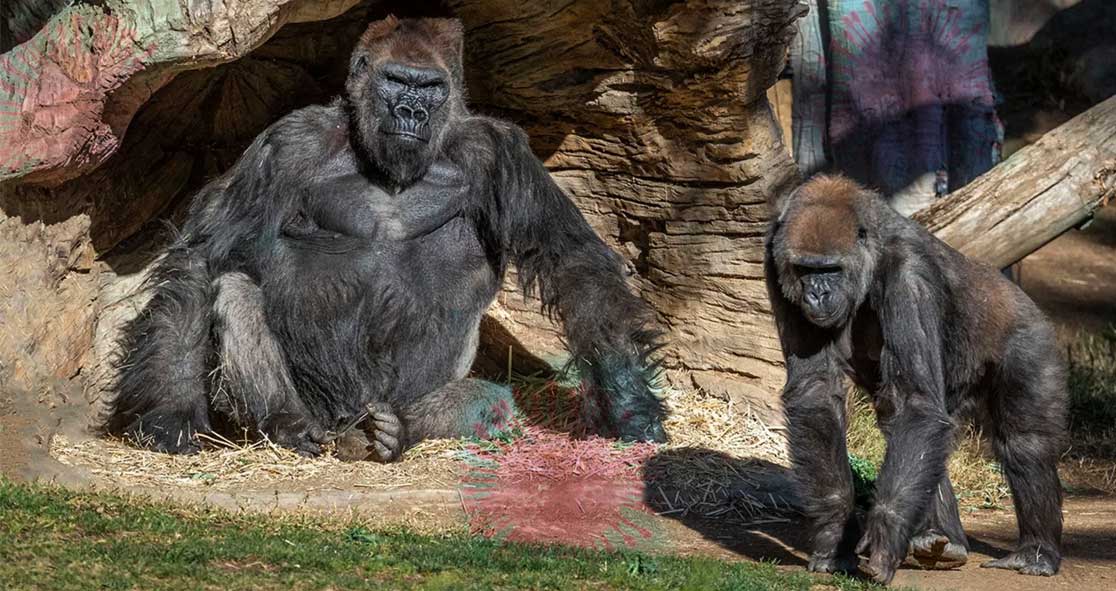Gorillas at the San Diego Zoo Safari Park have tested positive for COVID-19, the disease caused by the new coronavirus (SARS-CoV-2). It is now believed to be the first known cases among such primates in the U.S. and possibly the world.
On Monday, Lisa Peterson, Executive Director of San Diego Zoo Safari Park, told The Associated Press that eight gorillas that live together at the park are believed to have been infected by the virus and some have been coughing.
The infection might have come from a member of the park’s wildlife care team who also tested positive for COVID but has been asymptomatic and wore a mask at all times around the gorillas.
“The park has been closed to the public since Dec. 6 as part of the state of California’s lockdown efforts to curb coronavirus cases,” according to ABC News.
Peterson said veterinarians have been closely monitoring the gorillas and they will remain in their habitat at the park, north of San Diego. They have been receiving vitamins, fluid, and food, but no specific treatment for the infection.
She said, “Aside from some congestion and coughing, the gorillas are doing well.”
Other wildlife has contracted COVID, but this is the first known case of transmission to great apes. It is unclear whether they will have any serious reaction.
The infected gorillas are western lowland gorillas, whose “population has declined by more than 60% over the last two decades because of poaching and disease,” according to the World Wildlife Fund.
The staff tested the feces of the gorillas after two of them began coughing on January 6. The U.S. Department of Agriculture National Veterinary Services Laboratories confirmed the diagnosis in three gorillas.
Peterson said, “This is wildlife, and they have their own resiliency and can heal differently than we do.”
On Monday, the park added more safety measures for its staff, providing face shields and eye goggles while they are in close contact with the animals.
The park officials said, “The confirmation that gorillas are susceptible to the coronavirus contributes to information about how the pandemic may affect these species in their native habitats where they come into contact with humans and human materials.”
The park now plans to share what it learns with health officials, conservationists, and scientists to develop strategies to protect gorillas in the African forests. The news article was published in ABC News.























